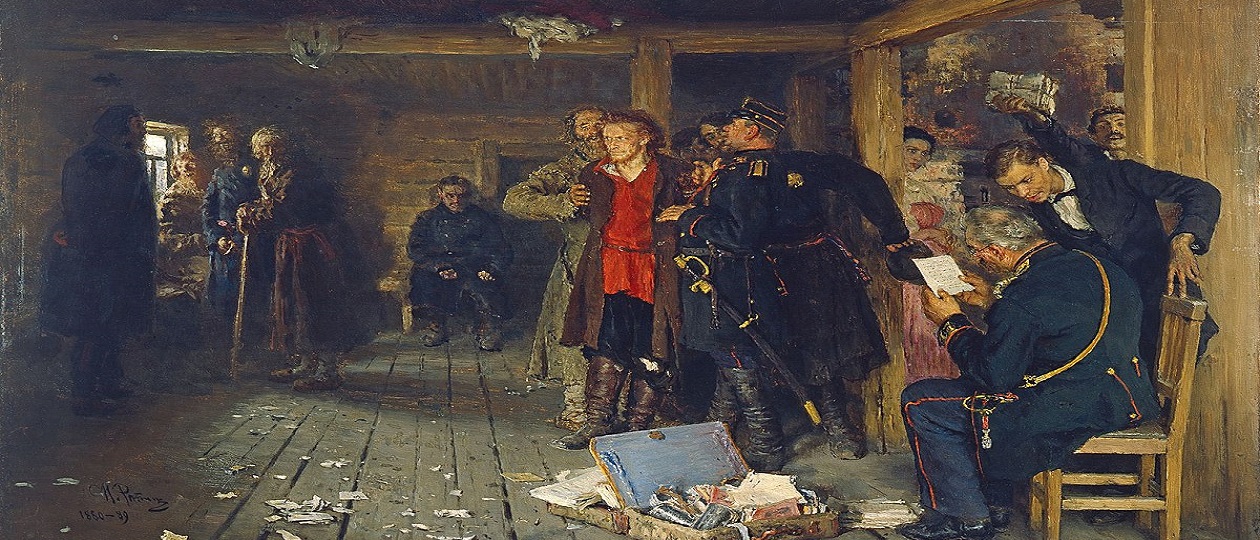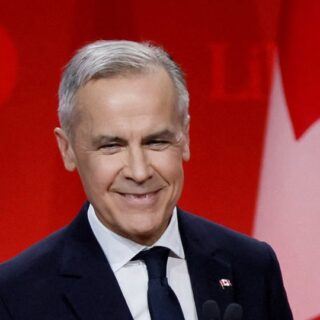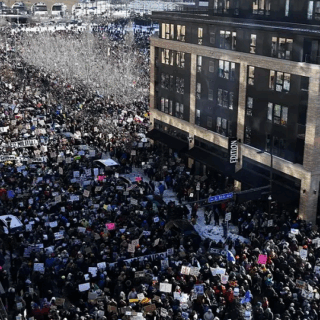
The terrorists of the People’s Will [Народная Воля] became legends in their own time. Many of their admirers included Russian and foreign writers.
Heroes in World Literature
Among the foreign writers who admired the narodovol’tsy [members of the People’s Will] were Emile Zola, Victor Hugo, Guy Maupassant, Jules Verne, Oscar Wilde, Arthur Conan Doyle, and Mark Twain. As Soviet historian Nikolai Alekseevich Troitsky noted about the Russian and foreign writers <<None of them approved of terror, neither in its white or red variations. But they all understood that the People’s Will was fighting—even though it was compelled to resort to savage means—against the despotism of the autocracy for a free and democratic Russia.>>
Novels about the narodovol’tsy already appeared in the 1880s in European countries, and then in the Russian Empire after the Revolution of 1905-1907. Polish and Jewish writers described how many young Poles and Jews joined the People’s Will.
Right up to the end of the 1980s, the Soviet novel series <<Flaming Revolutionaries>> [Пламенные революционеры] published several novels about the narodovol’tsy with the most famous novel being Impatience [Нетерпение] by Yuri Trifonov about Andrei Zhelyabov. Ironically, the series was published by Politizdat, the publishing of the Central Committee of Communist Party of the Soviet Union, the same party that banned study of the People’s Will for 20 years and sent many surviving narodovol’tsy, in their 70s and 80s, to prison and exile.
The publication of the series coincided with the rise of dissident movements in the Soviet Union and outbreaks of terrorism in Western Europe and other parts of the world.
One must wonder if Party leaders realized the possible consequences of showing the revolutionary passion of the narodovol’tsy as examples for Soviet youth to follow.
Certainly, the biographical series Lives of Remarkable People [Жизнь замечательных людей], published by Molodaya Gvardiya (Young Guard) from the Komsomol, the Communist youth organization, realized the consequences. This series published very few biographies of narodovol’tsy and the post-Soviet series focuses heavily on the lives of tsars, Orthodox saints, and other figures of the past.
Nearly all novels about the People’s Will celebrate how the narodovol’tsy engaged in single combat [единоборство] with the autocracy. It would be nearly impossible to find novels glorifying terrorist organizations like the Italian Red Brigades, the West German Red Army Fraction, the Irish Republic Army, the Islamist Al-Qaida.
Only Uruguay’s Tupamaros [National Liberation Movement] of the 1960-1970s come close to the People’s Will in obtaining an honorable place in the history of world terrorism.
People Larger than Life
People make history. Historians generally focus on the <<heroic period>> of the People’s Will Executive Committee between 1879-1882. During these years, the members of the Executive Committee carried out the assassination of Tsar Alexander II on March 1, 1881, after a series of unsuccessful attempts, organized different satellite groups about officers, students, members of the intelligentsia, workers, tried to enlist the support of liberals, non-Russian minorities, and European public opinion. Many historians still write that the history of the People’s Will ended in 1882-1882 with the destruction of the Executive Committee. They regard the work of the committee as a failure because it did not overthrow the government. One often receives the impression that one is reading about a doomed cause. But a doomed cause gives the cause a certain appeal and this appeal gets reinforced when reading about the lives of the narodovol’tsy.
The makeup of the approximately 50 members of the Executive Committee and their immediate followers have contributed to the legendary image of the Narodovol’tsy. They represented different social classes in contrast to the largely aristocratic Decembrists of 1825. Members of different nationalities and religions belonged to the Executive Committee. Women made up one-third of committee members. The romances of the narodovol’tsy men and women have long attracted the attention of historians and novelists. The People’s Will had its own Romeo and Juliette story. The leaders of the assassination of the tsar were Andrei Zhelyabov, a former serf, and Sofiya Perovskaya, the daughter of a former St. Petersburg governor and the great-great-granddaughter of Hetman Kirill Razumovskii. Zhelyabov and Perovskaya were hanged together.
The social, ethnic, religious, and gender makeup of the Executive Committee and its immediate followers show the extent of the changes in Russian society since the emancipation of the serfs in 1861.
Most members of the Executive Committee were veterans of the revolutionary populist movement of the 1870s. They had belonged to different illegal circles and participated in the <<Going to the People>> in 1874 when several thousand young populists went to the villages and tried to ignite a peasant revolution. Many future narodovol’tsy were arrested, spent several years in prison, and were defendants in the trials of the 50 and 193 in 1877. In fact, at least 12 future members of the Executive Committee met for the first time at the Trial of the 193 which turned out to be a congress of activists with fatal consequences for the government. The experience of arrest, imprisonment, and trials shaped the foundational myth of the People’s Will—the justification for terrorism. Historians still emphasize this foundational myth when they write about why the People’s Will chose terrorism.
Responding to Terror with Terrorism
Members of the People’s Will Executive Committee were defendants in the Trials of the 16 in 1880, the 6 in 1881, the 20 in 1882, the 17 in 1883, and the 14 in 1884. In all these trials, the defendants proclaimed that government repressions, especially in 1874, had forced them to become terrorists. The <<red terror>> of the People’s Will was only an answer to the government’s <<white terror>>.
As Vera Figner told the court in 1884 <<My previous life led me to the belief that the only way by which the existing order can be changed is through violence. I could not take a peaceful path: the press, as it is known, is not free, so thinking about spreading ideas through the printed word is impossible. If some organ of society had shown me another path, apart from violence, I would have chosen it or at least I would have tried it. But I did not see any protest neither in local government nor in the courts nor any other corporate institutions. There was no indication in literature in the sense of changing that life which we live. Thus, I realized that the only way out of the situation in which we live is through violent activity.
Soviet historian Nikolai Troitsky continually emphasized that government repression created the People’s Will. <<In Russia, the People’s Will preferred the peaceful path of transforming the country…Only the orgy of <<white terror>> from the government forced the populists to turn to the answer of <<red terror>>. The cyclone of government repressions against the peaceful propagandists of 1874-1878 (up to 8,000 arrests just in 1874), tens of political trials in those years with sentences of 10-15 years of hard labor just for the printed and oral word, finally 16 executions only in 1879, just for unproven <<membership in a criminal organization>>, possession of revolutionary proclamations, donating money to the revolutionary treasury, etc. — all this forced people to turn to violence (even if just for self-defense), people who were organically incapable by their spiritual qualities of committing any violence. Here is what the narodovolets A.A.Kviatkovskii said before he received a death sentence <<to create a tiger, you do not have to be one by nature. There are social situations when lambs become tigers>>.>>
Nobody can deny the courage of the members of the People’s Will at political trials. However, the foundational myth of the organization — that the government had forced them to become terrorists — should be seen as just that — a justification for terrorism. The history of the People’s Will also has many dark pages which remain unknown to many people. Only by looking at the positive and characteristics of the narodovol’tsy can we understand the complexities of their history and why they still hold a unique place in the history of terrorism.
Citations
- Троицкий Н.А. «Народная воля» и ее «красный террор». (The <<People’s Will>> and its <<red terror>>). Опубликовано в книге: Индивидуальный политический террор в России (XIX – начало XX вв.): Материалы конференции. Москва.: Мемориал, 1996. Доступно в электронной форме: http://old.memo.ru/history/terror/index.htm
- Рокки Тони. Идеологическое и тактическое оружие организации «Народной воли»: как народовольцы стали легендарными в истории терроризма (The ideological and tactical weapons of the People’s Will organization: how the narodovol’tsy became legendary in the history of terrorism). // Сборник материалов VIII Международной научно-практической конференции. 7–9 октября 2020 г. Тула-2021, с. 421-432.
- Фигнер В.Н. Последнее слово, процесс 14-ти, 24-28 сентября, 1884. Запечатленный труд: воспоминания в двух томах. (Last word, trial of the 14, September 24-28, 1884. Impressed work. Memories in two volumes). Москва: Мысль, 1964.
- Троицкий Н.А. За что я люблю народовольцев. (Why I love the narodovol’tsy] Режим доступа: http://scepsis.net/library/id_719.html





